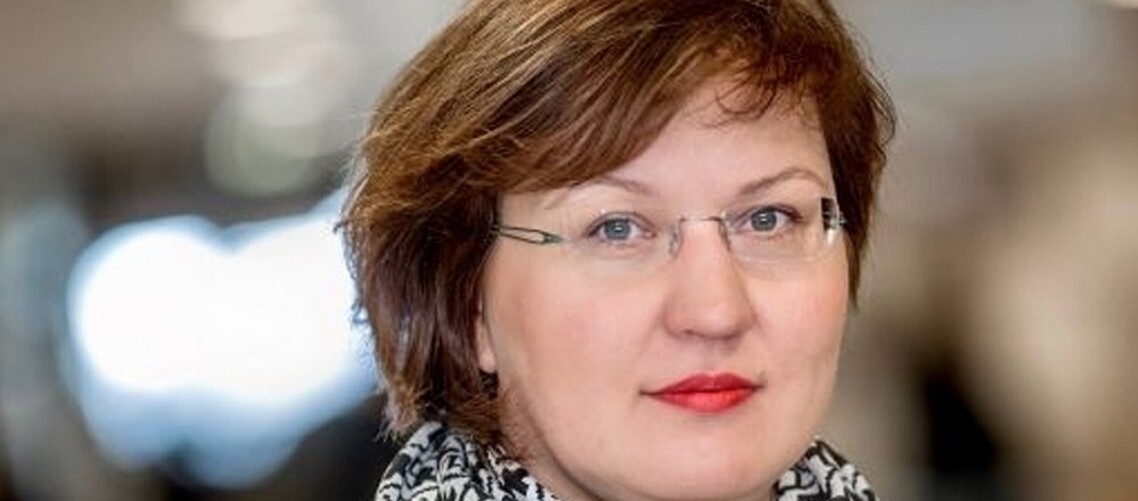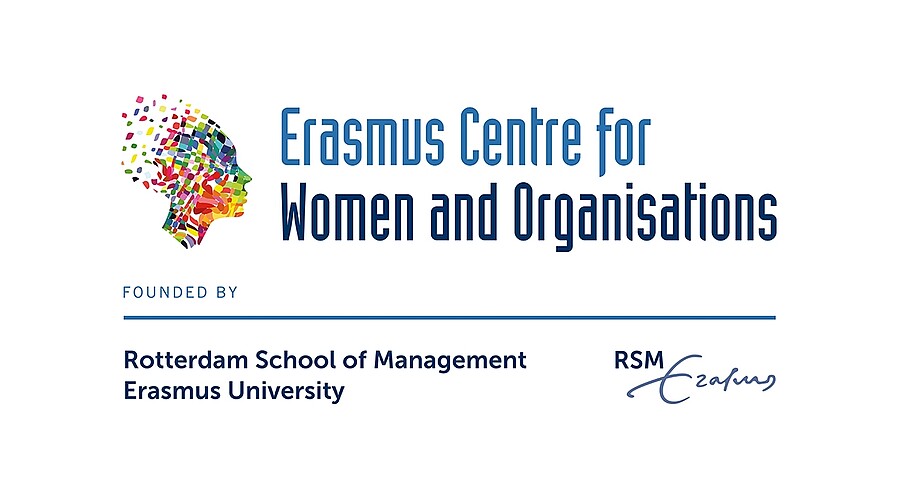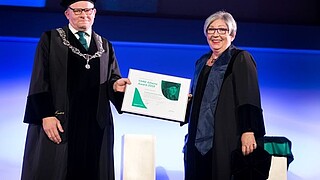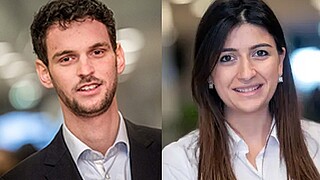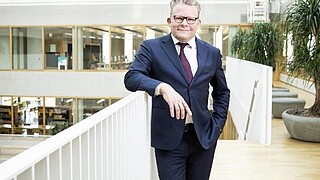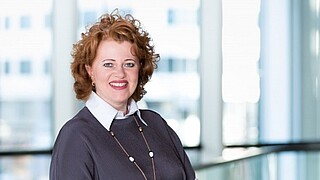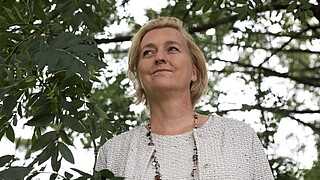Congratulations on receiving your PhD through Erasmus Research Institute of Management. What was the most challenging part of this journey for you – personally and professionally?
I am fortunate in that learning has always come naturally to me and when I came to academia after working as an organisational change consultant, I knew I wanted to make a profession out of it. But doing the PhD was truly a character-building exercise. When I was in the industry, I remember asking my boss – who had a PhD – why he appreciates employing people with PhDs and he said it’s because they have a remarkable frustration tolerance. When you’re undertaking a PhD you have to try a lot of things and most of them don’t work so you have to have the resilience and strength to recapture the whole thing and keep moving forward, using your own sense of direction. You also have to learn to think for yourself, to figure out what matters most, what aligns with your values and your purpose and how you can help the broader world. You don’t let setbacks stop you from looking for solutions that work, which is essential in innovation and dealing with an unpredictable environment.
Doing a PhD was also a lesson in breathing. Quite literally. Some of my work looks into meditation and how it can help you be more creative, and how taking a breath and so a pause can help you see the broader scope of things and choose better solutions. I use mindfulness meditation in my daily life. I like it because it has a solid scientific stance. Lastly, I would say that undertaking a PhD really made me think about time management and, because of this, I now have a system in place. My day starts with focusing on the most important tasks, which are usually of the most strategic value to me. The afternoon is for connection and interaction with other people, whether in the form of meetings, answering emails and the like.
Evolutionary history also shows us that we have always relied on achieving stuff together. How else were we going to hunt a mammoth!
Can you give us insight into what originally set you on this path of exploring the human condition, as we relate to one another in big groups.
The answer is twofold. After I studied Business Administration and began working as a consultant, I quickly realised that so many of the beautiful ideas and concepts that we bring into organisations are not supported if we don’t pull people along with us. This causes a lot of misery in companies – people start developing hidden agendas and negative dynamics come into play. I wanted to find out how to foster change in a more humane way. I also realised that I didn’t understand humans at all – and I wanted to! So I did a Masters in Psychology and then went onto a PhD as a way of taking a deeper look at social networks and how people can connect to the broader systems that we are situated in. The second reason was growing up in the former Soviet Union and seeing how relationships or connections (called sviazi) are crucial for survival. Frequently, they shield you from institutional failure. So the topic of social network dynamics – how relationships are formed and develop – has intrinsic fascination to me. Evolutionary history also shows us that we have always relied on achieving stuff together. How else were we going to hunt a mammoth!
Your PhD studied how personality and interpersonal perceptions contribute to social network dynamics. Why is an understanding of evolving social networks so important to all of us as we head into the third decade of this century?
You don’t need to look far to see how polarised society is today and so understanding the processes of what brings us together and how we organise ourselves is fascinating and important. It’s also something that crosses all areas of working life. When I did my first social network course there were people studying disease transmission, mathematicians, historians, physicists, sociologists and organisational scientists. There are fundamental rules that drive the behaviour of different systems – be they an organisation or a beehive or politics.
ECWO provides access to wisdom, encouragement and learning
You worked with ECWO studying inclusion and collaborative relationships within organisations and evaluated measures that lead to increased female representation in leadership roles. Did working in an organisation like ECWO impact your PhD research and your own thinking?
My focus is on helping people have more fulfilling collaborative relationships in their professional life – and, as an academic, you do this through research, teaching and advocacy. ECWO creates this wonderful platform that unites all three for someone like me. It also provides a way of looking at the world through a different lens – a gender lens – that helps you understand what is happening and how to better navigate your own career path. I love the access to wisdom, encouragement and learning that ECWO provides. I grew up in a family of strong women and in a society that was, at least then, more gender balanced. My mom ran a publishing house. My aunt was a surgeon. There were women cosmonauts. It was all seemingly within our grasp – that is, until we hit professional life. I came to ECWO because I believe in its mission. There is no better platform providing empirically-based advice to individual women, to women aspiring to leadership positions. It also provides a supportive and encouraging community that makes the going easier – and positive role-models who show the possibilities of women in leadership.
One of these is Dianne Bevelander?
In my PhD I describe meeting Dianne as “another transformational experience”. Dianne reminds us that life does not owe us anything, but provides raw materials for the gift of creation. This insight amplifies my pursuits – and reminds me not to let any grievances, excuses or even tragedy stop us from moving on in the direction of own dreams and realising our own true potential. I have her to thank for teaching us all how to “look for shiny eyes”, how to co-create opportunities and how to make the best out of every single day.
Are there any findings from your research that have particular importance for gender within social networks dynamics?
We know that people prefer relationships with those who are similar to themselves. I also see it in my data: men tend to hang around with men, women with women. It is more comfortable this way: we have similar problems and challenges and have more to talk about. But, over time, this leads to closed social worlds. In a way, you start sitting in your own echo-chamber, chewing on the same opinions and having the same information. If you would like to have new ideas, have a broader recognition within your organisation and beyond, remember to venture out and connect to people who are different than you in many respects. This could also generate advantages for your own community.
Pervasiveness of gender bias in research context
Among your findings is the role of proactive personality in perceptions of competence and friendship. Do you have a particular gender lens on this, particularly against the background of your work with organisations?
Let me give the readers a bit of context. In our study we were interested in how proactive personality impacts relationships in teams. Proactive personality is an individual’s tendency to initiate change. Proactive people were able to recognise actual competence of others better, and they also appeared as more competent teammates than reactive people. As people have this tendency to see their friends as competent and to befriend competent people, proactive people were able to ride on this self-reinforcing loop between friendship and perceptions of competence more.
What we were surprised about, is that our participants – both women and men - thought that their female team members were less competent than male ones. We were stunned by how pervasive the implicit gender bias was within our context. We were puzzled at first - maybe women in our study previously performed worse than men? We ran some extra analyses and saw that this was not the case. In (our) university, women usually do better than men. We know from previous research that people consistently underestimate competence of women, but to see it so clearly in my own data was a chilling experience. One study, for example, pooled the results from more than 100 empirical studies of over 378000 participants to show that people do not value work by women as much as they value work by men. In our study we could show how competence bias puts women at a disadvantage: if women are perceived as less competent, they are less likely to develop supporting relationships that can help them in their career advancement. If we look on this issue broader, over time these seemingly small differences sum up and accumulate into substantial inequalities in terms of career development, income and opportunities available. Working against the competence bias is like running against the wind – it hinders you.
What can women do to counter this?
Few things come to mind. First, it is important that people know about the implicit bias and how that disadvantages women by limiting opportunities. This alone would not be sufficient – facts alone do not convince people. Implicit gender biases come from cultural stereotypes that frequently portray women as less competent. You can contribute your bit to change that, by complimenting your female colleague next time for their competence. Tell them, how much you admire the great solution that they found. In conversation with a colleague suggest them as an expert on the issue. Echo their idea in the meeting and attribute the idea properly - which was something that was explicitly done by women in President Barack Obama’s cabinet.
We also saw in our study that women were somewhat less proactive. Usually men and women do not actually differ in proactiveness. Because proactiveness – the tendency to initiate change in the environment - is traditionally aligned with the stereotype of male behaviour, we think that our women were socialised to not to show it. People in minority and lower status positions generally have to inhibit themselves more. They usually do not have enough leeway to challenge the way things are, which further makes others think that they are not competent enough. This perpetuates the problem.
What can we learn from this? If you base your performance evaluations on displays of proactive personality, minority members might experience negative impact. Take that into account, when you design performance appraisals. Watch out for the norms within your organisation: do they allow and help people to express themselves? How does your bias affect your hiring and promotion decisions?
Steps to getting along and getting ahead
If you were to identify some take-aways from your research on “how to get along and to get ahead” – particularly for women in organisations - what would those be?
The message for managers
The message to managers is to first, watch out for favouritism that comes from the self-reinforcing loop between perceptions of competence and friendship. For example, a manager might be more likely to promote a friend because they think this friend is competent. Managers should also consider the social context of friendships within organisations – and make sure to use objective measures of competence – when they are mediating conflicts or deciding whom to promote. Also, managers could foster inclusive climates within their departments to create a thriving organisation.
The message for recruiters and employers
For recruiters, be careful around nepotism. Be aware that if your hire friends of friends, you might attribute higher competence to people than they actually have. To thrive in a diverse society, the key is to promote inclusion within the organisation and to be aware of the reinforcing nature of biases. Also, do your bit to support other women and to toot their competence.
The message for employees
And for employees, the research indicates that to move up the social ladder, it helps to display proactive behaviour. But also be aware that groups of friends and colleagues tend to divide themselves. Work on your friendships but do not amplify conflict. Watch out that your friend’s enemies do not become your own enemies.
What do the next few years hold for you?
As an academic, you are never done – the moment you start relaxing, new research ideas bubble up. I would continue my research looking for solutions that could foster fulfilling collaborative relationships and teach on what could help women advance faster within organizations. Where that would be – who knows? I am open for opportunities. It sure looks like I would not be out of work anytime soon.
